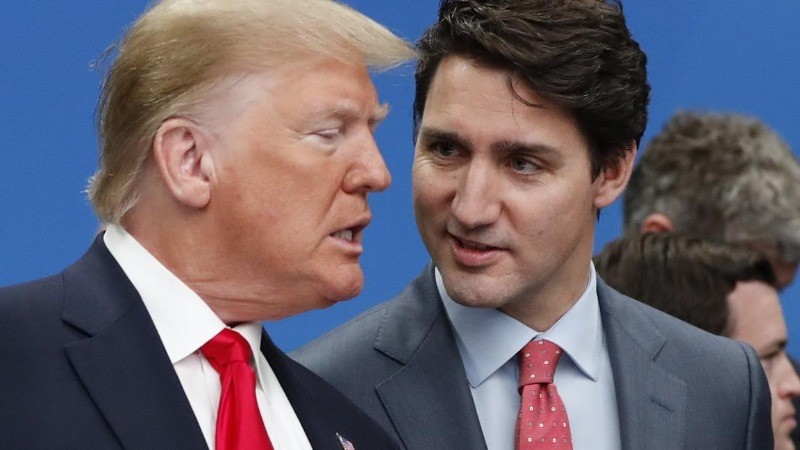 The ongoing trade tensions between Canada, Mexico, and the United States are escalating, especially with the looming threat of a 25% tariff on goods from both countries, as warned by President-elect Donald Trump. The proposed tariff would remain in place until issues such as fentanyl trafficking and illegal immigration are addressed, adding strain to the already complex relationship between the neighboring countries.
The ongoing trade tensions between Canada, Mexico, and the United States are escalating, especially with the looming threat of a 25% tariff on goods from both countries, as warned by President-elect Donald Trump. The proposed tariff would remain in place until issues such as fentanyl trafficking and illegal immigration are addressed, adding strain to the already complex relationship between the neighboring countries.
In a social media post, Trump declared the tariff on all goods and services from Canada and Mexico, which could severely damage their economies. Both nations have since sought assurances from Trump that the tariffs will be reconsidered. Canadian officials were quick to separate their border issues from those of Mexico, stating that drug smuggling and illegal crossings are more prevalent at the southern border and that Mexico is a key player in facilitating Chinese trade in North America.
Mexican President Claudia Sheinbaum responded to these comments, stressing that Canada should respect Mexico and acknowledge the country’s cultural and economic richness. She noted that Canada, like Mexico, is also grappling with issues such as fentanyl use. Sheinbaum’s statement followed a dinner meeting in which Canadian Prime Minister Justin Trudeau explained to Trump that Canada’s northern border is vastly different from Mexico’s southern border.
The diplomatic tensions have drawn reactions from both Canadian and Mexican leaders. Doug Ford, Ontario’s Premier, called the comparisons between the two borders “the most insulting thing” he’s heard from the U.S. He emphasized that Canada and Mexico face different security challenges and should not be grouped together.
The situation has been further complicated by ongoing trade issues with China. Ford has pushed for separate trade deals between Canada, the U.S., and Mexico, an idea that has found support in Alberta, Canada’s oil-rich province. Ford criticized the lack of progress on resolving these issues over the years.
In response to these growing tensions, Trudeau has suggested that Canada may need to explore other options if Mexico fails to address concerns regarding Chinese trade practices. Meanwhile, the economic relationship between Canada and the U.S. remains strong, with Ontario’s trade with the U.S. totaling over C$493 billion in 2023.
Marta Leardi-Anderson, executive director of the Cross-Border Institute, explained that Ford’s remarks reflect Ontario’s economic reliance on the U.S. trade relationship, particularly in the automotive sector. The region is crucial to Canada’s highly integrated auto industry, which is deeply intertwined with U.S. markets.
The escalating tension has also raised concerns about the potential for a divided North America, particularly as both Canada and Mexico work to balance their trade relations with the U.S. and address issues such as illegal immigration and drug trafficking. Mexico has also been active in combating fentanyl trafficking, with a record seizure valued at $400 million reported recently.
As the trade discussions evolve, the U.S., Canada, and Mexico continue to navigate these complex issues. The next steps in this trade drama will likely have lasting implications for North America’s economic and diplomatic future.




